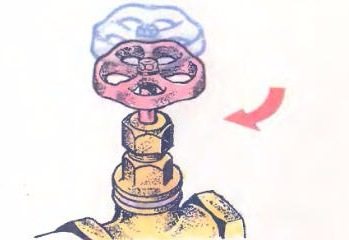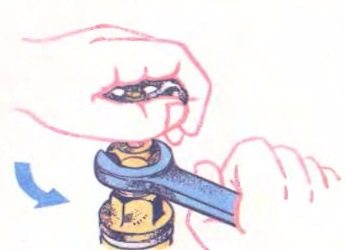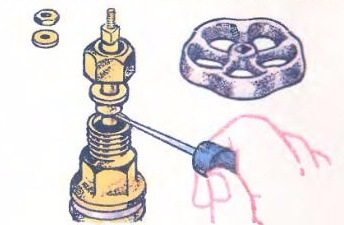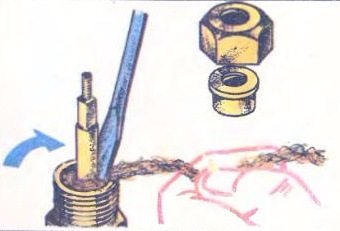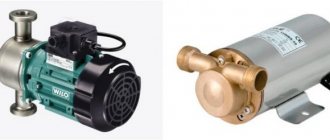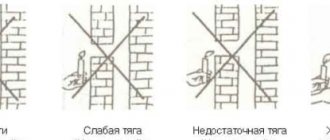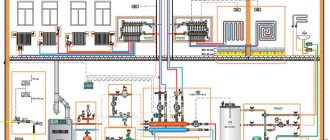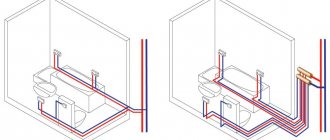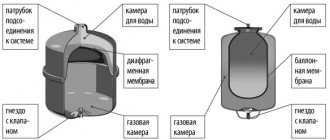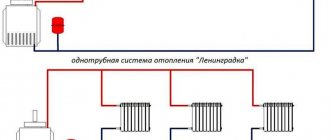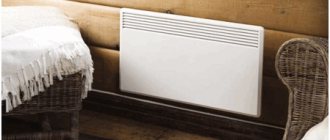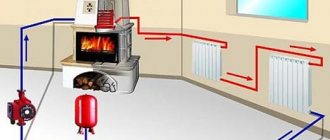Legal subtleties and nuances when disconnecting central heating
There is the option of shutting down the district heating without having to apply for a permit. Many of us have rarely seen contracts with public utilities for the supply of heat to your home. A priori, it is believed that the owners of an apartment building agree to the terms of supply of district heating services. In fact, the situation is suspended in the air from a legal point of view. There is no contract, no obligation.

Moreover, in almost every house you can find residents who have arbitrarily disconnected from the heat supply and have managed to equip their apartments with autonomous heating systems. There are practically no cases of prosecution for arbitrariness in this situation, so everyone decides the situation at their own peril and risk.
Consider situations when the consent of the residents of your house and neighbors is not required to make your desire to refuse from the services of centralized heating a reality.
Apartment buildings often have incompletely completed technical documentation regarding the heating system. In this regard, it often happens that the elements of the heating system are not part of the property complex of buildings. Despite the fact that in such a situation you will not need to obtain collective consent for the re-equipment of the heating systems in the apartment, official permits from the controlling and service organizations are required.
The reason is that any intervention in engineering networks requires mandatory fixation in the technical documentation. For each house there is a technical passport, which takes into account all the data on the operating heating system. Removal of radiators, insertion and installation of plugs in apartments, any other changes must be reflected in the technical passport. Guided by Art. 26 of the Housing Code of the Russian Federation, for further actions you will need the following package of documents:
- free-form application;
- registration certificate for the disconnected apartment;
- documents confirming the ownership (use) of the apartment;
- written consent of all legal residents of the apartment;
- technical opinion of specialists on the possibility of disconnecting and subsequent re-equipment of communications.
To complete the picture, it is required to attach a reorganization project to the package of documents, which is being developed by specialists of the relevant organizations and authorities. The design documentation must include calculations that prove the functionality of the central heating system in the house in the absence of elements of a disconnected apartment. In addition to the project, it is better to have a scheme of thermal-hydraulic calculations of the facility, an accurate calculation of residual heating.
A technically sound design is the first step to getting a permit. However, if the changes made can negatively affect the thermal efficiency of the entire house and cause a violation of the temperature regime in the apartments of other homeowners, such a project will be rejected.
Poor heating in the apartment: where to complain?
Why complain about the lack of heating in the apartment? Often, residents of multi-storey buildings simply do not know when there is no heating in an apartment, where to complain, and believe that they should immediately go to court. This is fundamentally the wrong approach.
To file a complaint about poor heating in an apartment, there is also a sequence of actions:
- First, you need to start with your housing office or an organization that provides heating services. To do this, in our time, it is not at all necessary to go to these institutions and stand in queues there. It is enough to call and file a complaint, writing down the name of the person who received it and the number under which it entered the application registration book.
A personal visit to the utility will speed up the process of handling the complaint, and employees of the utility can come on the same day to document its eligibility. By law, heating network technicians are required to check the cause of the complaint within two days. If they did not appear or considered that the consumer's claims were not justified, then you can proceed to the next stage of action. - Secondly, the next complaint about poor heating in the apartment (a sample is provided in the office) is submitted to the head of the housing office or the organization supplying heat. You can go further and immediately send your application to the head of the housing and communal department of the district administration.
All applications must be submitted in duplicate with an indication of their number in the registration book, the date of submission, the signature of the person who accepted them and the stamp of the organization.
By law, the service where the complaint was sent is obliged to respond to it within 30 days. Only after these authorities ignored the statements, and measures to eliminate the malfunctions in the heating system have not been taken, it is possible to sue heat suppliers.
Normative base
The normative act describes in detail the nuances of the relationship between the consumer and the resource supplying company:
- terms of preparation of engineering networks for the heating start-up season;
- responsibility for non-compliance with the regulations;
- when and who should repair obsolete communication elements.
Some of the questions about the responsibilities of public utilities are specified in Government Decree No. (last changes were made on May 22, 2019). This legislative act speaks about the terms for the repair of current breakdowns. The options are also listed when the heating must be turned off for technical reasons.
Watch the video: "When they turn off the heat supply in apartments."
Average daily temperature norm for de-energizing and starting heat supply
The average outdoor temperature, which affects the supply of the resource to residential buildings, is defined as the general level of fluctuations per day. For example, in the daytime the sun heats the air up to + 15 ° С, and at night the thermometer can drop to -1 ° С. Thus, the average mode is + 8 ° С.
If for three days in a row the street temperature will generally be + 8 ° C, then it is time to start supplying heat.
In the spring, the situation is similar. The heating shutdown in 2020 in Russia occurred subject to the fact that for 3 consecutive days the average daily temperature was at around + 8 ° C.
Season to start heating supply
The heating period is the time when the temperature outside on average for 24 hours is no more than + 8 ° С. At the beginning of winter, the first to connect socially significant buildings: MUSOSH, preschool institutions, clinics, hospitals, orphanages. Then there are multi-storey residential buildings. Industrial facilities are connected last.
At the end of the heating season, the opposite is true. They start to turn off the prom. buildings, MKD and at the end socially significant premises.
Permissible period of lack of heat supply
In addition to the end of the heating season, there are additional reasons when, in the cold season, utilities stop the supply of heat to the apartment building. So, preventive work not carried out in time and major breakdowns on water mains can cause unplanned stops in the supply of heating.
Two laws regulating the timing of repair work and responsibility for their failure:
The law provides for a time frame during which utility employees are required to fix the problem:
Table 1.
| Mode | How long can the heating be turned off |
| + 12 ... 18 ° С | 16 hours |
| + 10 ... 12 ° С | 8 h. |
| + 8 ... 10 ° С | 4 hours |
If there is no heat in the house for much longer, you should contact the city's emergency dispatch service. In parallel, experts recommend notifying the management company.
Cold loop
What, besides an airlock, can lead to a stoppage of the heating system in a private or apartment building?
Here is a list of typical reasons for a private home:
- Power outage and stopping the circulation pump;
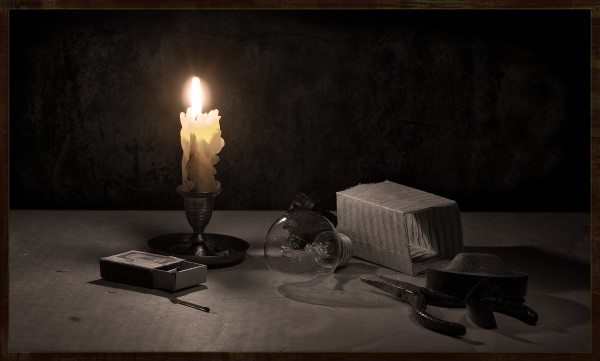

In winter, blackouts are not uncommon at a distance from large cities.
- Valve break screw valve from the stem and its sinking.
This happens if the installation is incorrect, when the coolant enters the valve not from below, but from above. The screw valve body has an arrow indicating the direction of water flow.
In an apartment building, you can add to the list:
- Falling valve cheeks... Due to mechanical wear, the cheeks are torn off the stem and lowered into the through channel of the body, blocking the water flow;
- Clogged risers foreign objects brought by water from the heating main. The sump in the elevator unit should theoretically retain debris, but in practice this does not always happen. I have repeatedly had the opportunity to get wooden chops and large pieces of welding slag from the risers;
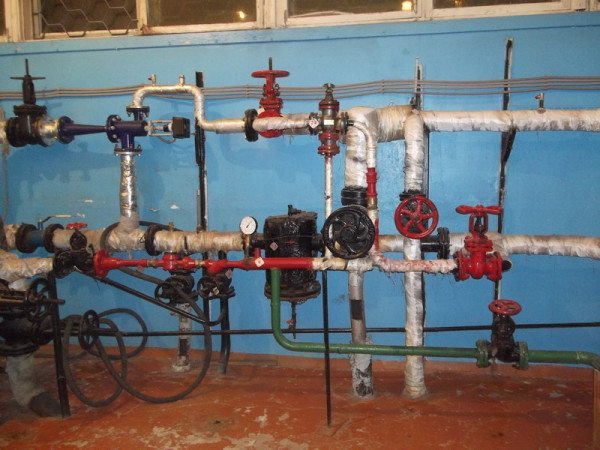

The black tank is a sump responsible for purifying water from the heating main. Alas, it does not hold all the trash.
- Neighbor manipulation with three-way taps and radiator shut-off valves... A three-way valve in Khrushchev stands directly on the lintel between the connections and in one of the positions completely stops the circulation in the riser. The taps on the connections can close it only in the absence of a jumper.
Stopping the pump
Description: when the circulation stops, the boiler continues to heat the coolant until its temperature reaches the thermostat trigger point. At the same time, the operation of a diesel or gas boiler stops; the solid fuel device continues to heat the water for some time, which usually leads to the operation of the safety valve in the safety group and the loss of part of the coolant.
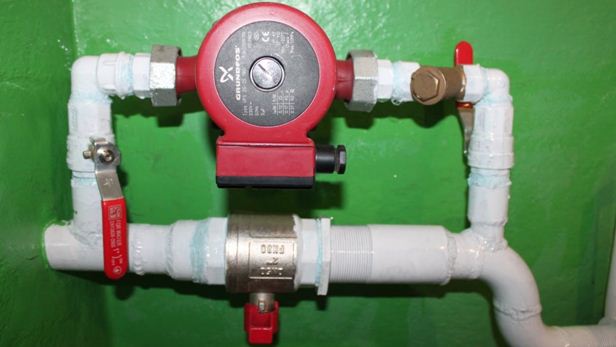

The pump is responsible for circulating water in the circuit. The photo shows its insert into the heating circuit.
Related article: Two-pipe heating system of a two-story house: wiring, balancing, choice of materials
Decision: Power the pump with an uninterruptible power supply. With a power consumption of 50-70 watts, an inexpensive UPS is enough for two to three hours of operation.
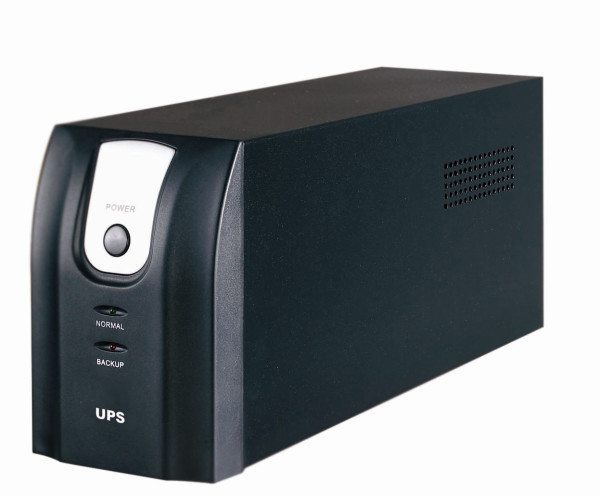

The UPS will keep the pump running when the lights are turned off.
Most of the problems are caused by the failure of the pump installed by the manufacturer in the boiler body. In this case, the owner will have to contact the organization that provides service for the heating equipment.
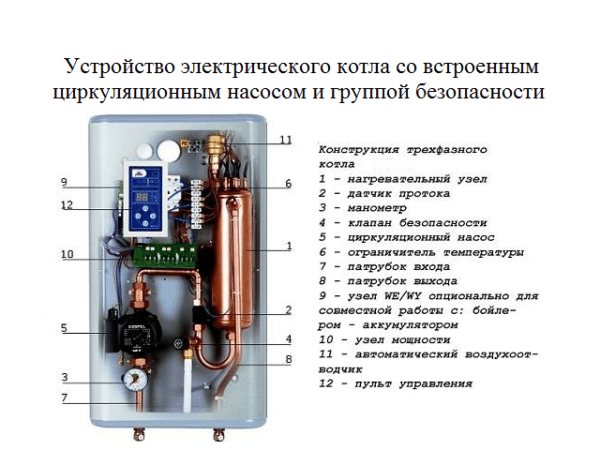

A modern boiler with a built-in pump is not the most reliable solution.
Valve break
Description: if the screw valve is not fully open, the valve is continuously dangling in the turbulent flow of water passing through the hole in the seat. Sooner or later, the wear of the stem leads to the detachment of the valve, which is pressed against the seat by the flow and completely stops the circulation.
Decision: valve replacement with a modern ball valve. It is much more fault-tolerant, does not require maintenance (periodic packing of the gland and replacement of gaskets) and can be installed in any position in relation to the direction of flow of the coolant. At the same time, the price of the crane differs little from the cost of the screw valve.
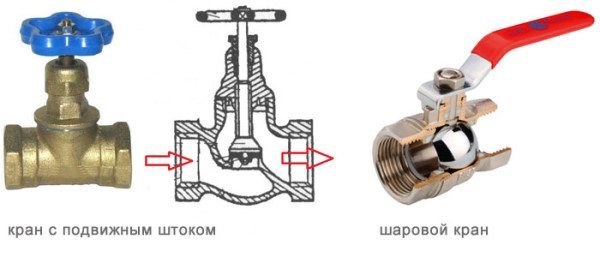

Unlike a screw valve, a ball valve is indifferent to the direction of movement of the working medium.
Falling valve cheeks
Description: in a wedge gate valve, the gate is two cast iron cheeks with brass rings, which are pressed against the mirrors - the same rings in the valve body. The cheeks are held on a bulge at the end of the stem. When the valve closes, they are bursting with a wedge installed between them.
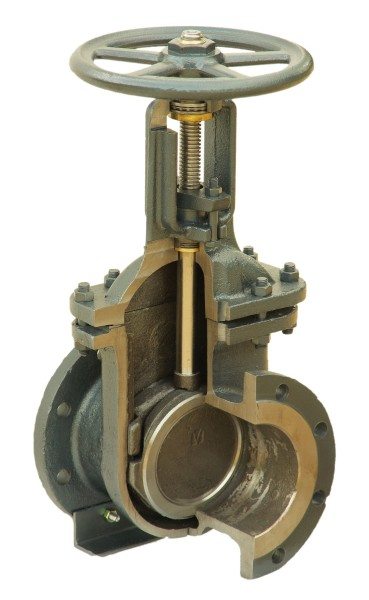

Sectional Wedge Gate Valve.
As soon as a wedge or a thickening on the rod is worn enough, the raised cheeks fall into the body, where the pressure of water presses one of them against the mirror.
Decision: valve repair is carried out by welding a wedge or stem. To access them, you need to remove the housing cover when the heating is dropped by unscrewing several bolts.
The management organization is responsible for the repair of heating systems in apartment buildings. An attempt by a tenant to fix the valve with his own hands will only lead to a conflict with housing dwellers and, most likely, to an administrative penalty, since you interfere with the work of public engineering systems.
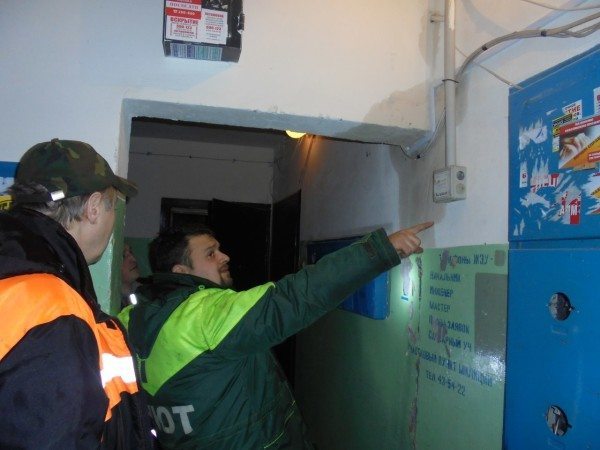

If there is no heating in an apartment building, you need to go not to the basement, but to the management company.
Blockage
Description: large debris brought by water from the heating main, usually stops under the seat of the screw valve. As a rule, the circulation does not stop completely, but slows down: the neighboring risers heat normally, and the problematic one barely warms up.
Decision: when the heating system is completely reset, unscrew the valve head and remove the cause of the blockage from under the seat with tweezers.
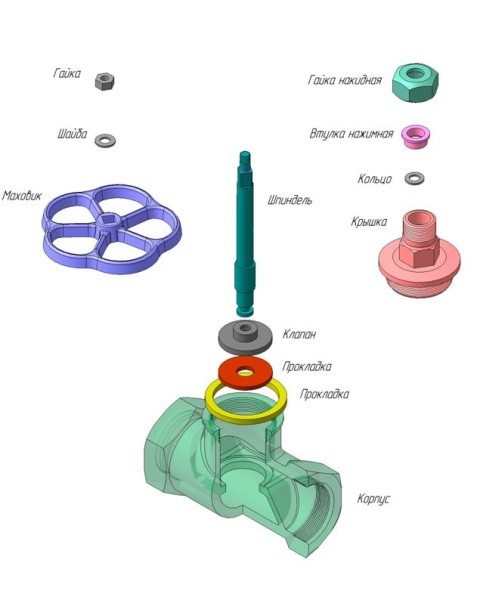

Screw valve device. When properly installed, large debris will stop under the saddle.
Closed taps
Description: a three-way valve in an abnormal position or a valve on connections not connected by a bypass completely stops the circulation in the riser.
Decision:
- In a house with three-way taps, you need to go around all the apartments along the riser, checking the position of the crane handle: normally it should look towards the radiator or jumper. If the handles are removed, look for scratched or peeled paint on the stem. After turning the valve to its normal position, the riser should heat up within 3-5 minutes;
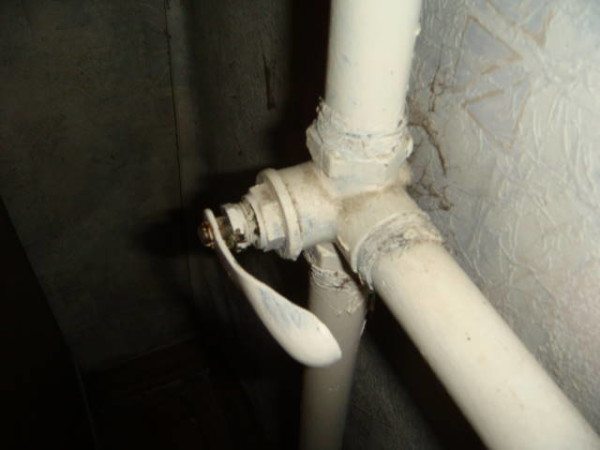

In this position of the tap, the coolant circulates through the radiator, bypassing the bulkhead.
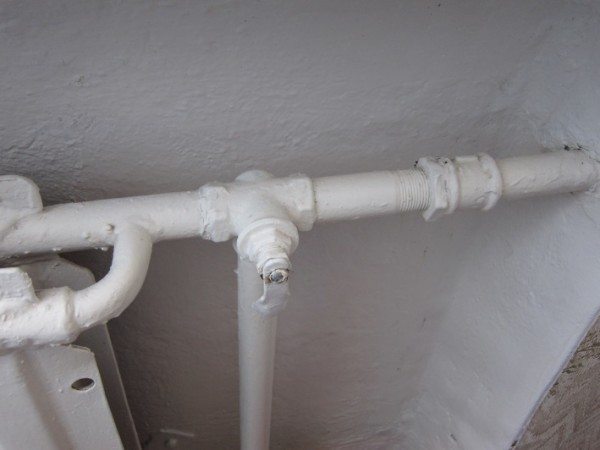

With this position of the tap handle, all the water flows through the jumper.
- If your home does not have three-way taps, look for a closed valve or choke on the liner without a jumper. To resume circulation, it is enough to open it, and after the end of the heating season, it is worth installing a bypass between the connections.
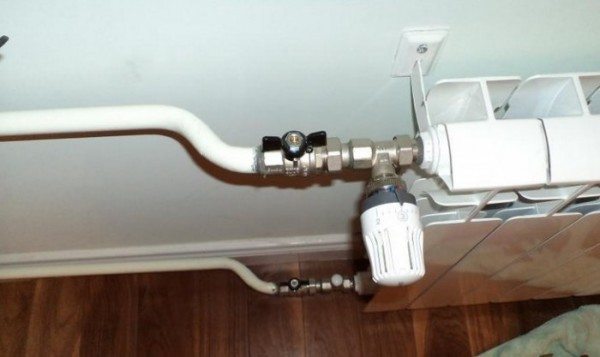

Without a jumper in front of the radiator, a thermal head installed on the liner will choke the entire riser.
When the heating is turned off in 2020
According to forecasters, the end of the heating season in 2020 will already begin on the 20th of April and, depending on the regions, will end in May.
The shutdown of the heating system by law occurs subject to several conditions:
Outside atmosphere temperature. According to Decree No. 354 "On the provision of public utilities ...", the end of the heating season is the time when daytime temperatures stay above 8C for 5 days. This condition applies to those houses where the coolant enters the engineering systems of the house through centralized networks. If this utility service is provided using common house equipment, then the end date of the heating season is determined by the owners of the premises in the house by holding a meeting and drawing up a decision. If this is not accepted, then they use the norms of the above Resolution.
Seasonal fit
When turning off the heat, the time is also taken into account when the shutdown of equipment by heat supply organizations is considered the most favorable. For central Russia, this is the period from April to mid-May.
It is then that the shutdown will be comfortable enough for the population and equipment.
As a rule, the end of the season for supplying heat to houses is coordinated with the meteorological services. They can predict whether a sharp downward temperature change is possible over the next 10 days. If this is not foreseen, then the supply of heat to the houses can be stopped with the onset of the first two conditions.
The final decision on stopping heat supply is made at the level of local authorities. Therefore, it is not always worth scolding the utilities that manage the house. In this case, they are only performers.
Schedule of heating shutdown in regions of Russia in 2020
Local authorities plan to turn off the heating by May 1.
| Region | Planned heating shutdown date |
| Moscow | 26 April |
| Moscow region | April 24 |
| Tver | May 3 |
| Lipetsk | 23 april |
| Vladimir | 23 april |
| Omsk | the 6th of May |
| St. Petersburg | may 13 |
| Minsk | 2 april |
| Ust-Kamenogorsk | 23 april |
| Mound | 5 May |
| Yaroslavl | April 27 |
| Tula | April 28 |
| Novokuznetsk | may 13 |
| Voronezh | April 22 |
| Ufa | the 6th of May |
| Khabarovsk | 1st of May |
The transition to summer mode and the shutdown of heat supply systems occurs in stages. First, this happens at industrial facilities, then office and administrative buildings and premises are turned off. Then comes the turn of residential buildings and only at the last moment the social sphere: hospitals, schools and kindergartens.
The answer of the Housing Inspectorate about the charges for heat for the ODPU in house 36: we analyze the questionable points
I have already said that in house 36, at the expense of the local budget, they installed general house heat metering devices (ODPU), and also that I filed a complaint with the housing inspectorate against the management company, which bills for heating according to the standard, and not according to the meters.
The housing inspectorate first reported that it “requested information”, then that it was “examining information”, and finally, it sent an answer, which I suggest you familiarize yourself with and together figure out where they are trying to mislead us, residents.
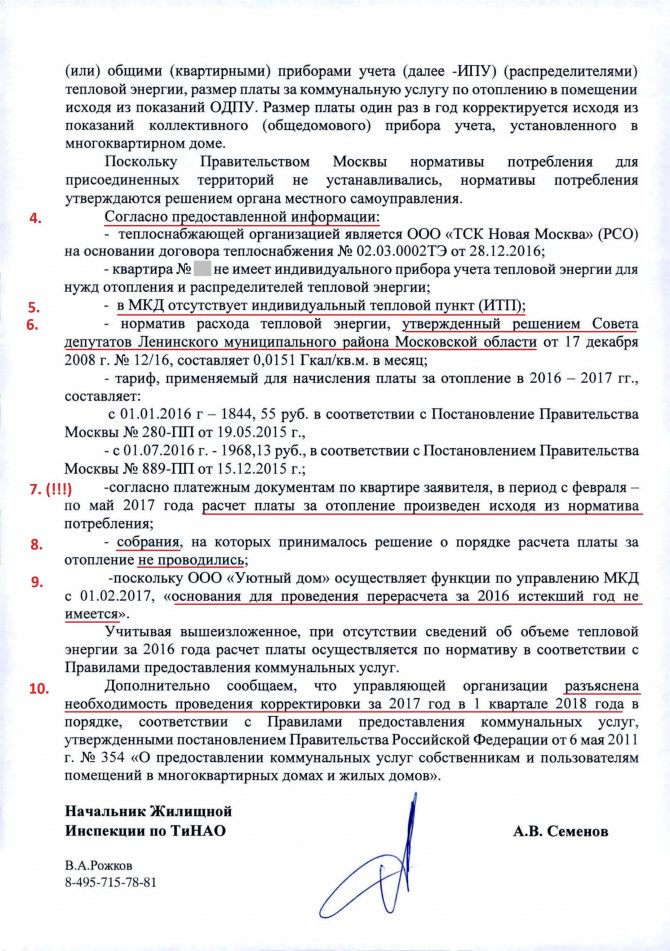

Let me remind you that I submitted this application: ==================================================================================================================================================================== I live and I am the owner of the living quarters of apartment XX in the building 36 of microdistrict 1 in Moskovsky in Moscow, which is managed by LLC Uyutny Dom. According to the contract of the Administration of Moskovsky settlement No. 3500305732516000080 in the building of 36 microdistrict 1 in Moskovsky in Moscow, work was carried out to install general house metering devices for central heating and hot water supply systems. The act of acceptance of the work performed was signed on October 03, 2020 (a copy of the act is attached).
LLC "Uyutny Dom" calculates charges for heat according to the standard (I attach the payment document), which is a violation of housing legislation, incl. nn. g.1, clause 31 of the Decree of the Government of the Russian Federation of May 6, 2011 N 354 "On the provision of utilities to owners and users of premises in apartment buildings and residential buildings", which prescribes to determine the amount of payment for utility services for heating based on the indications of collective (general) heat energy metering devices.
In the actions of LLC "Uyutny Dom", in my opinion, there are signs of an administrative offense under Art. 7.23.3. "Violation of the rules for carrying out entrepreneurial activities in the management of apartment buildings" of the Code of the Russian Federation on Administrative Offenses.
I ask: 1. To appoint and conduct a check on the facts stated in the application; 2. Initiate an administrative offense case under Art. 7.23.3 KRFoAP; 3. To bring the guilty person to administrative responsibility under Art. 7.23.3 KRFoAP; =============================================
So let's go ... 1. "In addition to the previously sent response."
One gets the impression that I have already been answered before. In fact, this is not the case, since before they just told me that the housing inspectorate "requested information", then that "is studying information."
2. "In accordance with the Decree of the Government of the Russian Federation No. 307 dated May 23, 2006"
The decision has already been canceled. And first, the Housing Inspectorate quotes this resolution, and then indicates that it has been canceled. The question is, why was it necessary to quote? My guess is to add volume.Note: sometimes it is allowed to cite canceled normative legal acts when a problem that arose during their validity is being considered. Here, as we can see, this is not the case.
3. "In the absence of a heat energy control center in an apartment building."
Again "extra information" for the volume, since in the house 36 ODPU installed, and I indicated this in the statement!
4. "According to the information provided."
The substitution of concepts is used here. In my statement, I said that the heat control unit was installed, and the calculation was made according to the standard. Accordingly, having received the answer that “information was requested,” I assumed that it was information about the amount of heat consumed that was requested. Here, as we can see, there is not a word about this, and again fantasies that are not relevant to the matter.
5. “There are no individual heating units (ITPs) in the MKD”.
Well, yes, it is absent, only this is irrelevant. It was about a general house heat meter! Note: An individual heating station is installed in houses and is used to obtain hot water by heating from cold water. Accordingly, in houses with IHP, the order of charges for heat is completely different. Both cold and hot water is supplied in our house.
6. “approved by the decision of the Council of Deputies of the Leninsky Municipal District of the Moscow Region”.
This is the problem that many residents of our settlement are struggling to solve, and it sounds like this: What does the decision of the Council of Deputies of the Leninsky Municipal District of the Moscow Region have to do with houses located on the territory of ANOTHER subject of the Russian Federation, in Moscow? Well, again, the statement does not dispute the amount of heat accrued according to the standard, i.e. this is beside the point.
7. "the calculation of the payment for heating is made on the basis of the standard."
This phrase is, in general, aerobatics of bureaucratic thought! Why? Because I am being informed about the fact for which I have filed a complaint !!! The question was precisely what is charged according to the standard, but should according to the indications of the heat control unit.
8. "no meetings ... were held."
And they shouldn't be! The issue of calculating payments for consumed heat is regulated by the Housing Code of the Russian Federation and the Decree of the Government of the Russian Federation of May 6, 2011 N 354! And for its solution it is not necessary to hold meetings !!!
9. "there are no grounds for recalculation for the past year 2020".
Also, "aerobatics"! I did not ask for this, the statement is about something else. A phrase for "volume" and solidity of the answer.
10. "The need to carry out the adjustment for 2017 in the 1st quarter of 2020 was clarified."
Three times ha-ha and one question: "How will the adjustments be made?" Is it really based on the readings of the ODPU heat? And what is stopping you from immediately calculating according to the actual volume of consumption? Although, I suppose, the matter is different: the Criminal Code, issuing bills for heat "according to the standard", receives colossal sums from residents, which, after a year, it recalculates and "returns". In other words, my assumption: the management company is credited free of charge at the expense of residents, "twists" these funds and receives additional income.
I think what to do next.
So far, the ideas are as follows: 1. To file a complaint with the district attorney's office against the district housing inspectorate about the answer not on the merits of the questions raised. 2. Submit a complaint to the city housing inspectorate against the district housing inspectorate about the answer not on the merits of the questions raised. 3. Well, in fact, since the district housing inspectorate did not answer me on the merits, re-apply with the same statement.
For more information, see the group VK "Housing and Utilities Courts"
Answer
Disconnection can be made due to arrears in payment for services rendered, due to revealed facts of non-contractual consumption, due to accidents, etc. (Clause 76 of the Decree of the Government of the Russian Federation of 08.08.2012 No. 808). Disconnection for other reasons is unacceptable.
The rationale for this position is given below in the materials of "Sistema Yurist"
.
DECISION OF THE GOVERNMENT OF THE RUSSIAN FEDERATION dated 08.08.2012 No. 808 "On the organization of heat supply in the Russian Federation and on amendments to some acts of the Government of the Russian Federation"
"76. Limitation and termination of the supply of heat energy to consumers can be introduced in the following cases:
non-fulfillment or improper fulfillment by the consumer of obligations to pay for heat energy (power) and (or) coolant, including obligations for their advance payment, if such a condition is provided for by the agreement, as well as violation of the terms of the agreement on the quantity, quality and values of thermodynamic parameters of the returned coolant and (or) violation of the mode of consumption of heat energy, significantly affecting the heat supply to other consumers in this heat supply system, as well as in case of non-observance of the mandatory requirements established by technical regulations for the safe operation of heat-consuming installations;
termination of the obligations of the parties under the heat supply agreement;
identification of the facts of non-contractual consumption of heat energy (power) and (or) heat carrier;
occurrence (threat of occurrence) of emergency situations in the heat supply system;
the presence of a consumer appeal to impose a restriction;
other cases stipulated by the regulatory legal acts of the Russian Federation or the heat supply agreement *. "
In recent years, there has been a steady trend among homeowners in apartment buildings to switch to autonomous heating options. The increased financial capabilities of apartment owners make it possible today to provide heating in an apartment at a completely different, higher technical level. This is largely facilitated by the emerging autonomous devices and units, which are highly efficient and economical.
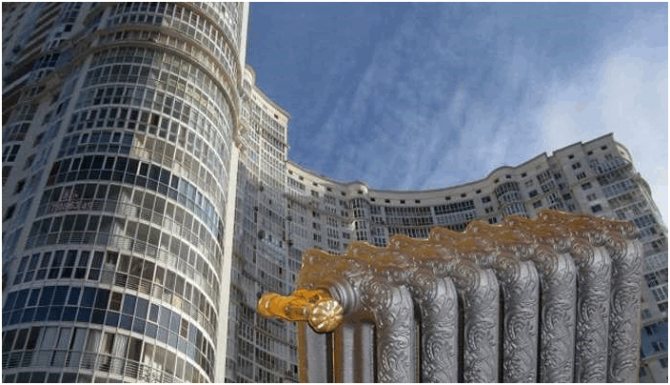

The desire to make your apartment absolutely independent from centralized heating supply is quite understandable and understandable. Often, the quality of the heating system in winter leaves much to be desired. Barely warm batteries, when winter is raging outside the window, unreasonable financial expenses are real prerequisites for completely abandoning heating in an apartment.
Leaks
Most often they appear:
- On the oil seals valves, throttles and, less often, ball valves;
- On locknuts in front of the radiators when they are connected to the liners with squeegees;
- Between sections sectional radiator;
- At the seams electrowelded water and gas pipes.
Omentum
Description: The rotating stem is sealed with a gland packing, rubber or PTFE packing ring. A gland is a ring that pushes the stem seal into the body. This ring is pressed with a union nut.
Leak occurs when the stuffing box is worn out or when the O-ring is worn.
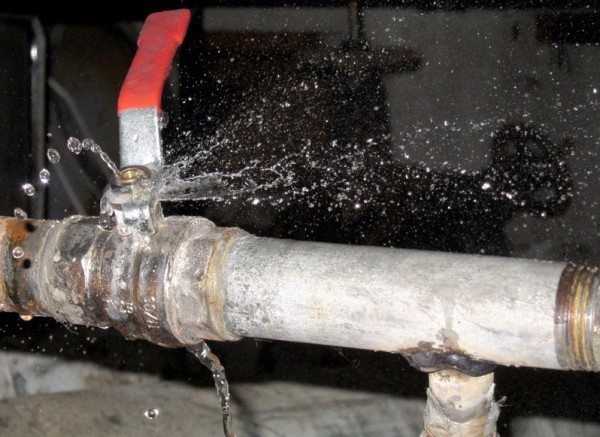

Leaking from the ball valve oil seal.
Decision:
- For valves with a rubber or PTFE sealing ring, it is enough to tighten the gland nut by 1-2 turns. The ring flattened by pressure will crimp the stem, and the flow will stop;
On ball valves, in especially neglected cases, laying several turns of FUM tape under the gland helps. The gland nut must be unscrewed with the valve completely closed.
- For valves with stuffing box packing, several turns of the graphite stuffing box thread are placed under the stuffing box. In this case, during the repair work, the heating (the entire circuit or a separate riser) will have to be reset: even with the valve closed above its valve, excess pressure will be present under the stuffing box. Here are the step-by-step instructions for stuffing the gland:
Related article: Thermostats for heating: principles of operation and the basics of correct installation
| Illustration | Actions |
| Close the valve all the way. Otherwise the threads on the stem will compress the packing from below and prevent you from sealing the packing. |
| Unscrew the nut oil seals with an open-ended or adjustable wrench. If the lamb gets in the way, remove it. |
| Take out the omentumprying it off with a screwdriver. |
| Pack the stuffing box... To do this, wind several turns of thread on the stem, pressing each turn with a screwdriver into the gap between the stem and the body. |
Lock-nut
Description: the locknut ensures the tightness of the connection of the squeegee (long-threaded branch pipe) with the radiator plug, coupling, angle, etc. Over time, the organic coils will fade due to the high operating temperature and the joint will leak.
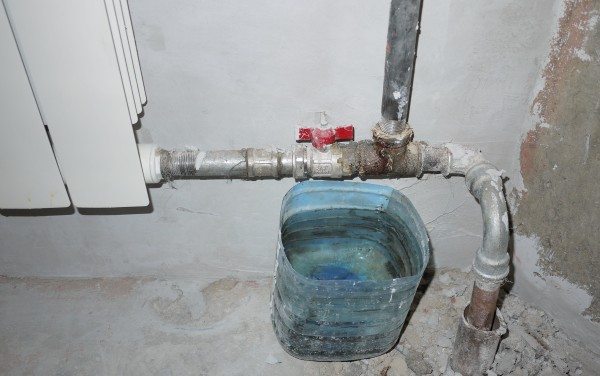

Leaking locknuts at the jumper-to-tee connection.
Decision: when the heating is reset, give the lock nut a few turns and rewind it with sanitary flax soaked in any paint on an organic solvent. The paint will prevent flax from fading again. Do not overtighten the nut to avoid stripping the threads on it.
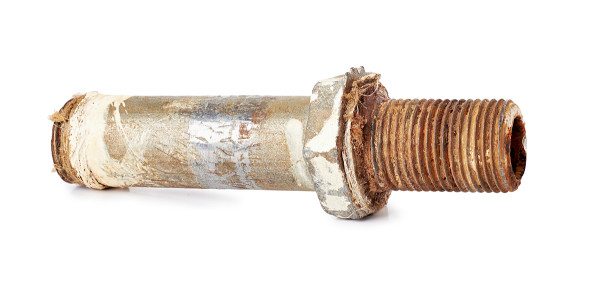

Ride with reel. Linen impregnated with paint will last for decades.
I emphasize that the heating (circuit or riser) should not just be stopped, but reset. If the rusted threads come off when the connection is disassembled (and this happens periodically), your home and several apartments down the riser will be flooded with hot and dirty water.
Between sections
Description: the reason for the appearance of leaks is the loss of elasticity of the rubber gaskets between the sections. When heated, the sections behave in the same way as any other physical bodies - they expand and squeeze the gasket harder. When cooled, the hard rubber ceases to seal the joint, and the plumbing, so dear to the heart, begins to drip.
Decision: the connection is disassembled with a radiator wrench inserted into the manifold from the end of the radiator and assembled with new gaskets.
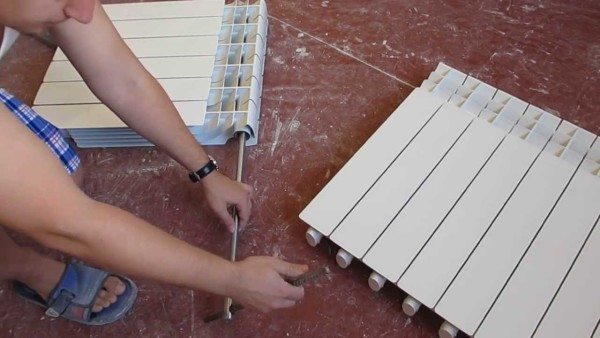

Dismantling the radiator to replace the intersection gaskets.
Plugs (deaf or straight through) must first be unscrewed; when disassembling from the side of the passage plugs, the battery will have to be first disconnected from the connections.
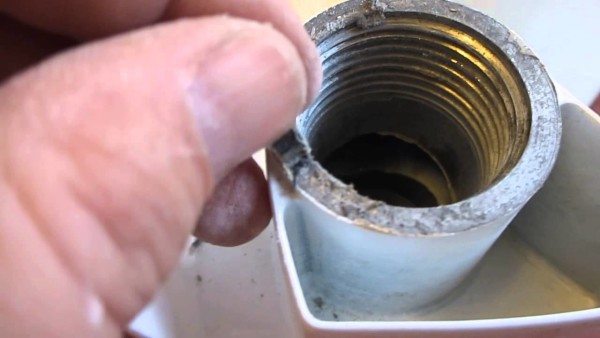

Bulkhead of the old radiator. Remember to remove the old gaskets.
A few subtleties:
- If the key is inserted from the side of the blind plug, to disconnect the sections, it must be rotated clockwise (reverse thread);
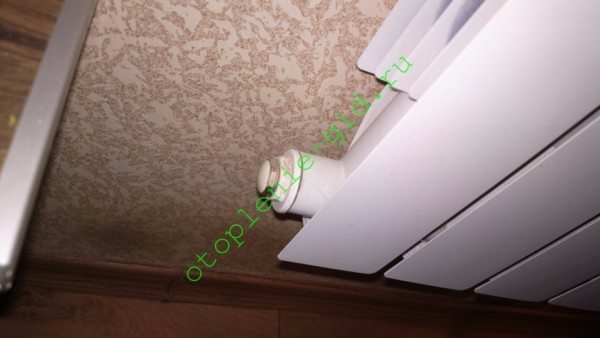

On the side of the blind plug, there is usually a left-hand thread. It unscrews clockwise.
- When unscrewing and screwing in the nipple, make no more than two turns at a time and go to the second nipple. So you can avoid misalignment of the thread with jamming of the nipple;
- If you don't have ready-made spacers at your disposal, use scissors from an old car or bicycle tube to cut them.
At the seam
Description: leakage at the seams of electric-welded pipes is a common disease of all heating and water supply systems made of black steel. The longitudinal seam is the most vulnerable point of the pipe, rolled from a steel tape and welded along the joint. This is where thin steel is most susceptible to corrosion.
Localization: Sometimes a layer of paint makes it difficult to find the exact location of the leak. Scrub away paint and rust with a knife or wire brush and you will see a small fountain of water. A clue can be a rusty drip on the paint: the fistula is always at its beginning.
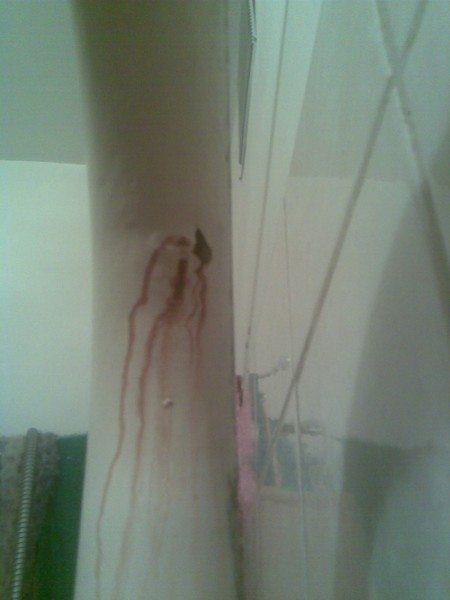

A rusty drip on the pipe allows you to quickly find the leak.
Decision: depending on the scale of the disaster, the repair of the heating system is reduced to welding a fistula or replacing a section of the pipeline. In an apartment building, this work is usually performed by a management company, and absolutely free of charge for residents.
A bandage applied to the leak will help as a temporary solution. For him you will need:
- A piece of thick rubber (for example, a gasket for a crane box without a hole for a fastening screw);
- An aluminum clamp or a piece of knitting wire.
The pipe around the fistula is cleaned of paint and rust, after which the rubber band is pressed against the problem area and pulled together with a clamp.
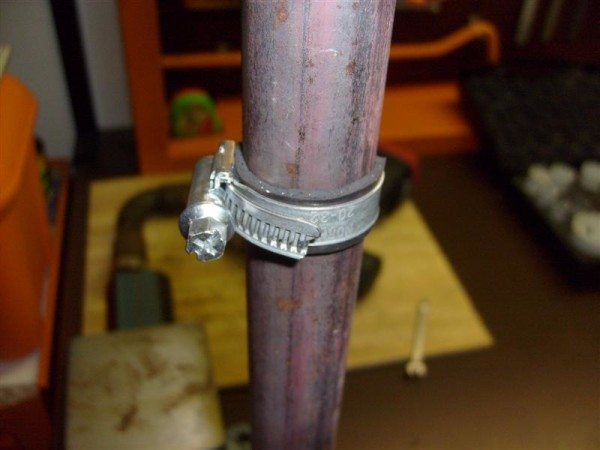

Riser band: an aluminum clamp holds the rubber band against the leak.
Such a heating repair is positioned as temporary, but a bandage with an aluminum clamp or thick copper wire serves indefinitely.I have seen bandages that have stood for 20-30 years.
Where to call if the heating is turned off hotline for complaints
Calls about heating should initially be at the office of the management company and the emergency service of the area. Sometimes the service provider has no information that the heating supply to the house has been interrupted. In other situations, the Criminal Code employees do not respond to complaints.
In this case, you need to call special hot lines for heating.
The following services operate in Moscow and the Moscow Region, regulating the situation with the supply of heat supply:
Table 1.
| Contacts | Organization |
| +74955395353 | Round-the-clock telephone for housing issues. Unified dispatching office for utilities. |
| +74955395959 | United Energy Company |
| +74956809861 | Housing and communal services |
| +74956817367 | Moscow Department of Housing and Communal Services. Directly supervises issues of water resources, sewerage and heating. |
| +74956810549 | The second number of the dispatching office of the Ministry of housing and communal services. It is also worth calling here if the heating is turned off. |
| +74956202760 | Emergency service for road accidents and pipeline repairs located under the roadbed. |
| +74957758770 | The center of the urban economy of the capital. |
| +74997633434 | Vodokanal stronghold |
| +74956578703 | The organization that controls the work of gutters. |
A complaint can be sent remotely through the websites of local municipalities:
Table 2.
| Office | Link to the official portal |
| Moscow administration | |
| Electronic reception of the mayor | |
| MOEK | |
| Public services | |
| "Moscow is our city" | |
| GZI | |
| Ministry of Housing and Communal Services of the Moscow Region | |
| Government of MO |
Alternative heating options. Reality and consequences of this step
The main argument that is guided by the owner of the apartment, who wished to disconnect from the heating plant and make autonomous heating in his house is independence. A characteristic feature of our country is the rapid change of seasons. Summer ends quickly, the heat accumulated in houses during the warm period quickly evaporates. For many of us, the state of expectation when the heating season will officially begin is associated with discomfort. There is still a lot of time before the date of turning on the centralized heating, but the apartment is already cold and not comfortable. There is a way out, and it just suggests itself.
Your own self-contained boiler is able to solve such problems once and for all. But how to turn off the centralized heating in your apartment in order to independently make decisions when, how much and for what to pay? All these questions require careful analysis and a competent approach. The main problem is huge bureaucratic work. In order to once and for all refuse the services of a regional energy company, a lot of permits and related documentation will be required.
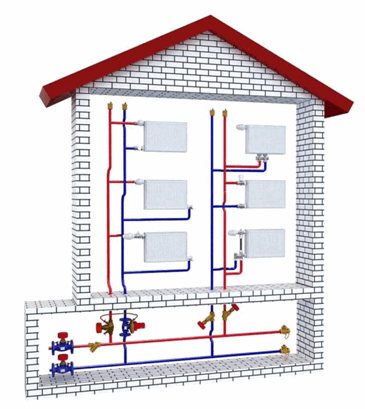

Any unauthorized intervention in the system can lead to a malfunction of the entire complex as a whole. Turning off one apartment from a single heating system will require re-equipment of the entire network and is associated with a large amount of engineering and technical work.
The entire system, in accordance with the norms of the legislation, is part of a single property complex, which belongs to an apartment building. The composition of the property of a residential building, its functionality and performance is determined by the homeowners. The conclusion suggests itself - decisions on making changes to the district heating system are made collectively. This requirement is clearly spelled out in the Housing Code. Disconnection of one apartment is an individual decision. However, unauthorized shutdown without obtaining appropriate permits and approvals is punishable by law. In some cases, such actions by the owner of the apartment can be classified as a criminal offense. Any work related to engineering networks in an apartment building must be performed by specialists, guided by the appropriate permits, terms of reference and project.
Where to complain if the heating was turned off illegally
There are legal and unauthorized grounds for suspending the supply of heating to residential buildings and premises.
In the event of major emergencies on central heating systems, there is a clear limit on the time frame for de-energizing the resource:
- 16 hours of downtime in heating while maintaining room temperature at 12 ° C-18 ° C;
- an eight-hour interruption in the supply of heat, provided that the temperature in apartments is maintained at least 10-12.
- no more than 4 hours, if the set mode in the living quarters is kept at the level of 8 ° С-10 ° С.
Delays in heat supply to apartments for longer than specified is considered illegal. It is impossible to keep silent about this fact - you should call if the heating is turned off to the supervisory structures. Additionally, a complaint is filed.
Initial complaints should be made directly to the home service company. The management of the managing organization must respond immediately. within 2 hours create a commission and consider the situation on the spot.
Emergency services are supervised by unified dispatch centers, which are also worth calling.
In the absence of a response, it is necessary to file a claim with the regulatory authorities:
- Housing inspection.
- Rospotrebnadzor.
- Municipality.
- The prosecutor's office.
- Court.
Before going further down the chain of command, it is necessary to inform the leadership of the Criminal Code or the housing and communal services - as a peaceful settlement of the problem. Often times, the situation is resolved at this stage, as utilities understand that further complaints will lead to proceedings and unscheduled inspections.
Supervisory authorities
The main bodies whose competence is to monitor and punish management companies and housing and communal services:
- Housing inspection;
- Rospotrebnadzor.
How to make a complaint about the lack of heating in the house
When filing a complaint, it is important to adhere to a business style, i.e.
less emotion and more facts.
Mandatory information:
- The title and name of the person to whom the claim is being written are indicated in the header of the application.
- The text of the appeal describes in detail the time and place of the incident.
- References are given to the clauses of the service agreement with the Criminal Code and legislative acts.
Samples of a complaint about a lack of heating are available here:
- In the name of the director of the management company.
- In GZI.
- To Rospotrebnadzor.
- The prosecutor's office.
How to get public utilities to turn on heating in a high-rise building in Moscow
Officially, the heating season in Moscow began this year on 23 September. Usually heat is given if within five days the average daily air temperature does not rise above +8 degrees. But in recent years, public utilities do not wait for these temperatures, and slowly begin to heat the city with the first cold snap. This year, since September 20, kindergartens, schools and hospitals have received warmth. And from Monday, September 23rd, hot water in the radiators began to hum in apartments with offices. But, as it turned out, not everywhere.
“Unfortunately, there are some management companies that are trying to save on heating bills and do not supply heat to apartments,” said Pyotr Biryukov, Deputy Mayor of Moscow for Housing and Communal Services and Improvement. - We have now instructed the housing inspectorate, all supervising services to strengthen control over such phenomena and to prevent the presence of heat at the control unit, there is no heat in the apartments.
With the help of specialists from the Moscow City Economy Complex, we figure out what to do for those who are still sitting without heating.
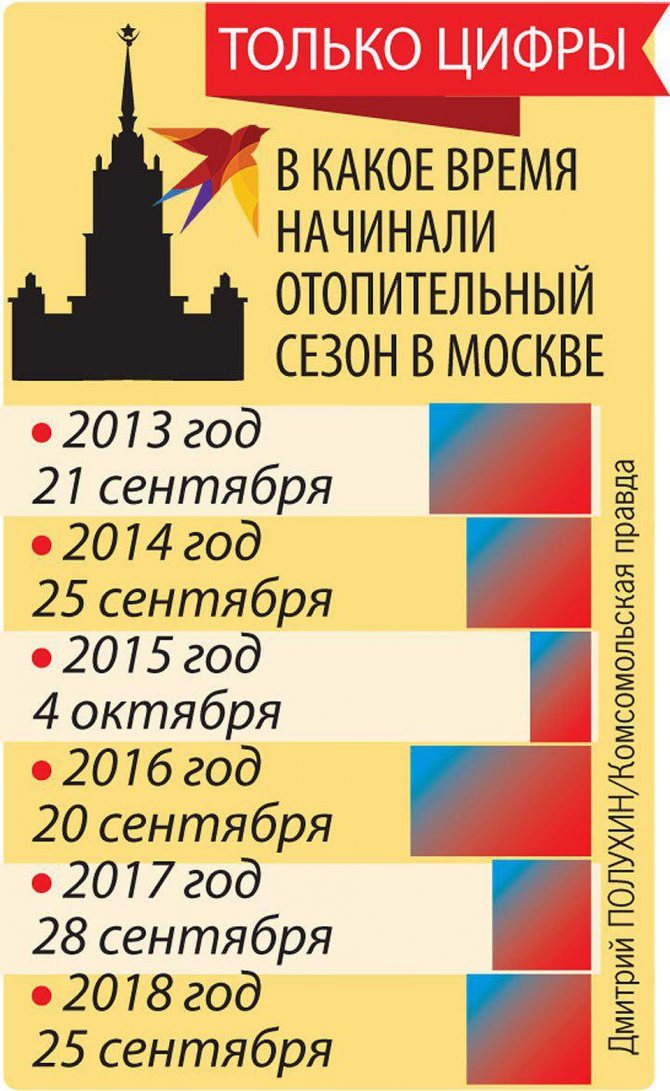

Officially, the heating season in Moscow began this year on September 23Photo: Dmitry POLUKHIN
WHERE TO COMPLAIN
If five or more days have passed since the start of the start-up of heat, that is, from September 23, and the batteries are still icy or do not heat well, a complaint can be sent in any convenient way:
1. By phone
- to the dedicated "hot line" of the Citywide Contact Center - 8-800-100-23-29;
- to the round-the-clock hotline of the Moscow United Energy Company (MOEK) - 8-495-539-59-59. Operators also receive reports of malfunctions in the heating and water supply system;
- to the Unified Dispatch Center (UDC) of the Department of Housing and Communal Services of Moscow (around the clock).
2. Via the Internet
- using the Moscow State Services mobile application;
- to the website of the Moscow government - "Our city" (gorod.mos.ru) in the section "Apartment buildings". Here you can report the cold in the entrance. They are obliged to give an answer within eight days, but on average it takes 3-4 days to wait.
HOME AND OFFICE TEMPERATURE RATES
In the apartment, provided that the residents have insulated their windows and doors, the air should be warmed up:
- in the living room, in the kitchen, in the bathroom - not lower than +18 degrees (in corner rooms - not lower than +20 degrees);
- in the inter-apartment corridor - not lower than +16;
- in the lobby, on the staircase - not lower than +14.
And in non-residential buildings, the temperature according to the norms should not fall below the following figures:
- in kindergarten: in the playroom of the nursery - 22 degrees of heat, in the playrooms of other groups - 21 degrees, in the bedrooms - 19 degrees (according to SanPiN 2.4.1.3049-13);
- at school - 18 degrees;
- in the office - 20 degrees, if your work is not associated with active physical activity.


To get a recalculation, the management company must measure the air temperature in your rooms and draw up an act Photo: Dmitry POLUKHIN
WHEN IT IS POSSIBLE TO DEMAND RECALCULATION OF THE RATING
1. For each hour of deviation of the air temperature from the norm, the fee is cut by 0.15% (see "Temperature standards at home and in the office"). At the same time, in extreme cases, at night from 0.00 to 5.00 a decrease in the standard temperature is allowed by no more than 3 degrees. And the excess is permissible by no more than 4 degrees (according to the decree of the government of the Russian Federation No. 354 of 05/06/11). By the way, in kindergartens and schools it is generally forbidden to turn off the batteries until the end of the heating season.
2. According to the rules, within a month, the heating in the apartment may be turned off for a total of no more than 24 hours. They can leave a residential building without heat at a time if the temperature in the premises is as follows:
- above +12 degrees - no more than 16 hours;
- from +10 to +12 degrees - for 8 hours;
- from +8 to +10 degrees - for 4 hours.
For each extra hour of cold, the amount for heating is reduced by 0.15%.
IMPORTANT!
How to get the recalculation:
- the management company must measure the air temperature in your rooms and draw up an act. The document is signed by the service provider, that is, the management company, and the owner of the freezing apartment;
- the act can be independently attributed to your own, so that there will be reduced your "communal apartment". If the management company itself draws up charges for housing and communal services, then the act remains with it.
Note! Overpaid money for a bad service will not be returned immediately. Since the amount for heating is calculated based on the average monthly consumption of heat energy for the previous year. That is, in 2020, we pay every month in equal shares for the heat that was spent in 2018. The amount for heating is adjusted once a year. In February 2020, utilities will check the data on heat consumed in a residential building. Then, in the first quarter of 2020, the amount in the "Heating" line for the current year will be recalculated.
If you were denied recalculation or you have doubts about the resulting amount, then you can contact the Moscow Housing Inspectorate (through the electronic reception on the website - mos. Ru / feedback / reception?). If the management company makes a fool of the tenants, the inspectors will force it to return to the victims the difference between the money paid and the actual price of the spent heat. For a high-rise building, the total amount may turn out to be rather big - from 300 thousand rubles to several million rubles - depending on the violation.
Possible causes of heating problems
There are reasons that do not depend on the person, the so-called force majeure.
Such circumstances include:
- Natural disasters that caused serious breakdowns on waterways.
- A major car accident on the road that damaged the pavement and pipes underneath.
But much more often, interruptions in heating are associated with negligence in the work of utility workers, such as:
- initially incorrectly drawn up project of heating networks;
- poorly installed insulation of water pipes - for this reason, the lines freeze;
- the system was installed with technical violations;
- lack of level or pressure of liquid in heat transfer fluids;
- uncleaned blockages in the central water supply in time;
- air locks have not been removed from the system;
- breakdowns in the main nodes of resource supply control;
- poorly carried out prevention of heating networks inside a residential building or premises.
Blockages in the heating system
Blockages occur as a result of dirt entering the heating system, with faulty mud collectors, with the deposition of corrosion products on the inner surface of the pipes. Most often they occur in pipe bends, branches, lower connections to heating devices, taps located on horizontal sections, crosses, tees and transitions.
When a riser is clogged, as a rule, the resistance of sections of heating systems increases and the flow rate of the coolant circulating through them decreases, as a result of which the average temperatures of heating devices in these sections decrease.
In a two-pipe heating system, before the pipeline is clogged, the normal temperature of the surfaces of all heating devices connected to this riser is observed (circulation before clogging is not disturbed). After a blockage, the temperature drops sharply, this happens as a result of a reduction in the flow rate of the coolant in the heating devices of the heating system or a complete stop of circulation through the devices.
In the event of blockages in the supply lines to heating devices or blockages of heating devices, the temperature decreases only on the surface of individual devices, while the entire riser of the heating system warms up normally.
Clogs in the heating system are eliminated by hydraulic, hydropneumatic flushing or cleaning. Before flushing, the entire system is inspected: its tightness is checked, the mud collectors in the control units are disassembled and cleaned, etc.
Heating standards
In winter, the temperature in the rooms should be as follows:
- In an apartment or house - 18 ° C and above, and in corners it must rise by another 2 degrees.
- Kindergarten - 22-24 ° C for nurseries, for other rooms –21-23 ° C. The bedroom is set to a mode not lower than 19 degrees.
- Schools - any room inside an educational institution - 18-24 ° C. In workshops and sports halls - 17-20 ° C.
- The situation with the workplace is more complicated. The indicators depend on the type of load that goes on a person. Therefore, the temperature can fluctuate between 16-18 ° C if the worker is physically involved. Labor in the shop, when the employee stands behind the machine and moves little, involves the establishment of a mode of at least 22-24 ° C.
Statistics of de-energizing heating pipes in houses
If the weather is too cold outside, then the heating services have no legal reason to stop supplying heating to residential buildings. The delay in shutdown may be due to anomalies that lead to minor cold snaps in the spring.
If you study the statistics for 2007-2018, you can understand that the battery disconnection in Moscow occurs between the last days of April and the May holidays. It was during this period that the temperature in Russia did not drop below 8 ° C for many days.
Official statistics for turning off heating from 2007 to 2020 show that heat is given to houses in the period from April 21 to May 10.
Schedule of heating shutdown in regions of Russia in 2020
2019 was no exception for the residents of the Russian Federation in terms of weather. Forecasters did not forecast early warming. In fact, this is what happened. If 5 years ago in mid-April there was already a widespread disconnection of batteries in apartments, then in this reporting period the beginning of the month was more like winter in Moscow and Moscow Region.
In the southern regions, it is relatively warmer, but in early April, average daily degrees drop below the temperature at which heating is turned off according to the law. For example, this year Moscow was cut off from heat on 04/26/2019, Tula - 04/28/2019, Yaroslavl - 04/24/2019, and Tver - 04/29/2019.
What is the heating season
The heating season lasts from the time the utilities turn on the heating until they turn it off. This gap usually begins in the fall and ends in the spring. However, the exact terms are regulated by the relevant authorities.
Heating is supplied through central pipes. There are such constructions in every home. To make it easier for you to understand how central heating works, we suggest that you familiarize yourself with its process in more detail.
How is the process of heating apartments:
- The apartments are heated by piping. Pipes run from the city central boiler house and go to houses and apartments. Here the coolant is water.
- Also, houses can be heated by heat and power plants. In this case, electricity and steam are used as heat carriers.
- The coolant is supplied through a well-developed pipe system. The pipes run in two rows. According to the first, the coolant enters the apartments, according to the second it returns from them.
- In apartments, heat is distributed through pipes.
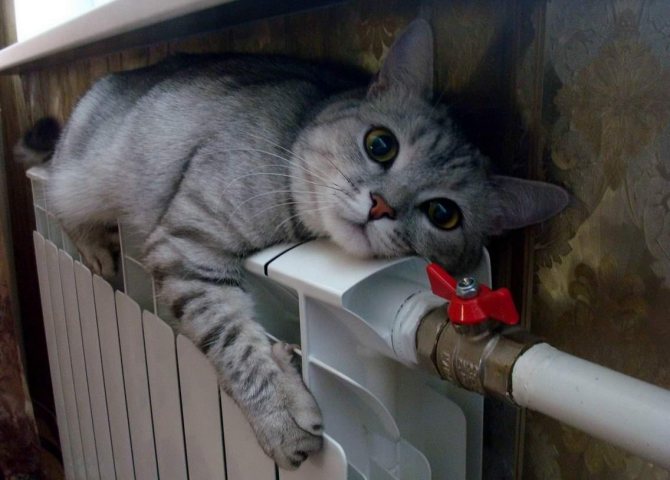

This system has central heating. With its help, multimillion cities are heated. However, you have to pay for such services.
Air ingress into the heating system - airing
Airing the heating system leads to the creation of air locks that interfere with the circulation of the coolant. Ventilation occurs as a result of the fact that the water contains dissolved air, which, when heated, is released in the form of bubbles that rise to the upper sections of the pipeline, where it accumulates, creating air locks. Air can also enter the heating system when the pressure in it decreases, as a result of which a partial emptying of the heating system occurs, as well as during leaks from the pipelines and draining the system during its repair, when the heating system is filled with a coolant. Air usually collects at the top of the heating system. To remove air, air collectors are placed at these points, which, according to their design, can be flowing vertical and horizontal, as well as non-flowing vertical ones. Air from the upper part of the air receiver is removed periodically manually through a valve or by automatic air vents.
Depending on the heating circuit, start the elimination of airing the system by opening the Mayevsky air vent valve or the water tap on the air collector. Keep the taps open until all the air is out of the system and water is running out. There are times when neither air nor water flows when opening the Mayevsky tap and the water taps. This indicates a clogged Mayevsky tap or a malfunctioning water tap.
Eliminate the clogging of the Mayevsky tap as follows. Unscrew the stem and clean the hole with a needle. Try to tighten the valve stem before water appears. To check the serviceability of the valve or water tap and eliminate their malfunction, first shut off the heating riser with the help of shut-off and control equipment, which are valves or bronze cork stuffing box taps.
If, after cleaning the Mayevsky tap and eliminating the malfunction of the water tap, neither air nor water flows through them, then check the serviceability of the valves on the riser. To perform these operations, shut off the heating of a part of the house by shutting off valves or valves on the wiring-wing in the basement. To check and fix the valve malfunction on the riser, unscrew the valve body cover, replace and secure the gasket of hard heat-resistant rubber. Replace the valve body and screw the cap back on. After elimination of the malfunction, place the valves in a closed position. After opening the valves, first open the valve on the supply riser, and then on the return. Otherwise, the pressure of water can rupture the valve of the valve installed on the supply riser.
If the operations to eliminate the airing of the system do not lead to a positive result, proceed to the search and elimination of the blockage of the riser or supply to the heating devices. It is advisable to repeat this operation several times. After 20-30 minutes after carrying out the operations to eliminate air bubbles, check if the riser pipe and heating devices are working. If the riser and heating devices began to warm up, then this indicates the beginning of the circulation of the coolant.
End of the heating season
The end of the heating season is also of great importance. After all, everyone wants to know when their home will cease to be heated. Therefore, the whole country is closely following the news about this day.
The end of the heating season, like its beginning, cannot be predicted. The fact is that it is impossible to determine exactly when it will be warm outside. Actually for this, according to the new rules, the timing of the heating season may vary.
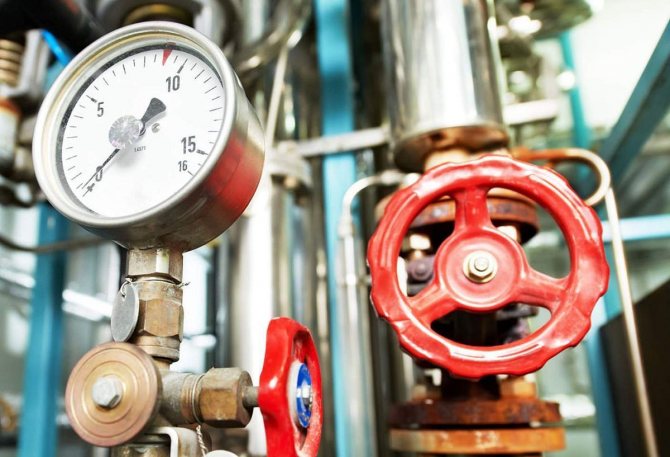

You can guess when the heating season will end by taking last year's figures into account. For example, in 2020, heating in Moscow was turned off on May 2. Consequently, we can expect that Muscovites will stop heating at about the same time in 2020. However, this forecast is not accurate, since frosts may drag on, or, on the contrary, the winter will be short. However, central heating also has its negative factors.
Cons of central heating:
- Central heating works non-stop, therefore, during the heating season, the air in the apartment is very dry;
- Sometimes, in strong porosity, pipes in the heating system can burst, because of this, interruptions are possible;
- The intensity level of the central heating cannot be adjusted, so some people may feel discomfort.
As you can see, the central heating is faulty. Therefore, many people have switched to autonomous heating of their homes.
Summarizing
Problems with the operation of the heating system are a rather unpleasant thing, because they appear only during the heating season. And their elimination is fraught with certain difficulties - after all, you have to turn off the heating during repair work. Timely inspection and preparation of heating for the winter will avoid these troubles.
The video shows the elimination of several common defects in the heating system.
Did you like the article? Subscribe to our channel Yandex.Zen
Where to call
hydraulic tests in a hot water settlement
According to Russian legislation, namely article 5 of the "Rules for the provision of utilities to owners and users of premises in apartment buildings and residential buildings": "The heating period must start no later than and end no earlier than the day following the day of the end of the 5-day period, during which, respectively, the average daily outside temperature is below 8 degrees Celsius ...
»Thus, the start of the heating season depends on the weather conditions.
The approximate period for the beginning of the 2016/2017 heating season in Moscow is October 4-10, 2020.
Heat supply procedure
Two weeks before the heating is turned on, test runs are carried out in order to identify breakdowns and leaks. The first, where the launches are carried out and the first to turn on the heating are social facilities: hospitals, schools and kindergartens. After the start of the heating season at these facilities, heat is supplied to the residential sector (apartments).
What should be the temperature in the apartment? Legal requirements
According to the "Rules for the provision of utilities:
- In residential premises, the temperature should not be lower than +18 ° C
- In the corner rooms of living quarters, the temperature should not be lower than +20 ° C
- In the kitchen - not lower than +18 ° C
- In the bathroom - not lower than +25 ° C
- In the toilet - not lower than +18 ° C
- At night (from 00.00 to 5.00) the air temperature in the apartment can drop by no more than 4 ° C
- In the daytime, temperature drops below the standard level are not allowed
How to correctly measure the temperature in an apartment?
It is necessary to place the measuring device in the center of the room, at the intersection of the diagonals between the corners, at a height of 1 meter from the floor.
Requirements for an allowable interruption in the supply of heat in accordance with the "Rules for the provision of communal services to owners and users of premises in apartment buildings and residential buildings":
- No more than 24 hours (in total) within 1 month
- No more than 16 hours at a time - at an air temperature in residential premises from + 12 ° С
- No more than 8 hours at a time - at an air temperature in residential premises from + 10 ° С to + 12 ° С
- No more than 4 hours at a time - at an air temperature in residential premises from + 8 ° С to + 10 ° С
For each hour of exceeding the permissible duration of the heating break, calculated in total for the billing period, the amount of the utility bill is reduced by 0.15%.
Blog
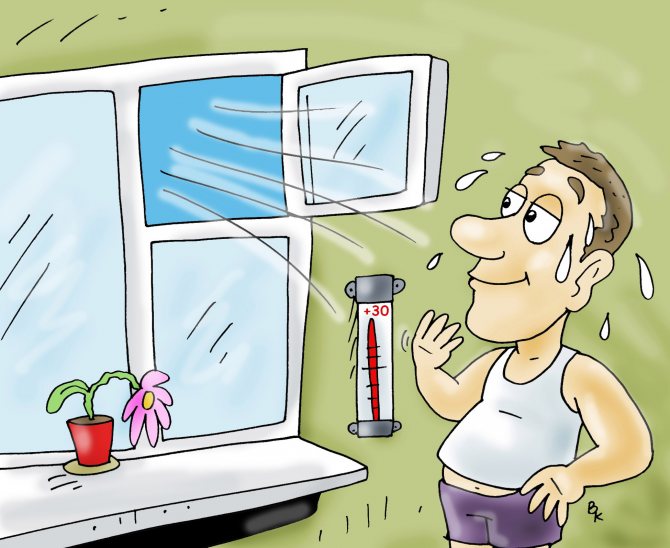

Surely, in each management organization, disgruntled owners raised the issue of recalculating for the provision of communal services of inadequate heat supply. Someone is cold, and someone is dying from the heat, despite the fact that it is -35 outside, and all the vents are open. And if everything is more or less clear with the cold in the apartment. So what about the "overheating"? Let's try to figure it out in this article.
In accordance with Art. 157 of the RF LC, the amount of payment for utilities is calculated based on the volume of consumed utilities, determined by the readings of metering devices, and in their absence, proceeding from the standards for the consumption of utilities (including the standards for the accumulation of solid municipal waste) approved by the state authorities of the subjects Of the Russian Federation in the manner established by the Government of the Russian Federation.
When operating systems of heating networks, the reliability of heat supply to consumers, the supply of heat carrier (water and steam) with a flow rate and parameters in accordance with the temperature schedule and pressure drop at the inlet must be ensured (clause 6.2.1 of the Rules for the technical operation of thermal power plants approved by order of the Ministry of Energy of the Russian Federation dated March 24 .2003 No. 115).
The operation of the central heating system of residential buildings must ensure, among other things, the maintenance of the optimal (not lower than the permissible) air temperature in the heated rooms
and maintaining the temperature of the water entering and returning from the heating system in accordance with the schedule of high-quality regulation of the water temperature in the heating system (clause 5.2.1. Resolution of the State Construction Committee of the Russian Federation of September 27, 2003 No. 170 "On Approval of the Rules and Norms for the Technical Operation of the Housing Stock") ...
According to clause 6.6 "GOST R 51617-2014. National standard of the Russian Federation. Housing and communal services and management of apartment buildings. Utilities. General requirements "(approved by the Order of the State Standard of 06/11/2014 No. 544-st), the public heating service is carried out in accordance with the legislation of the Russian Federation and must provide heat supply to the premises that are part of an apartment building.
By virtue of Part 4 of Article 157 of the RF LC, when the provision of utilities of inadequate quality and (or) with interruptions exceeding the established duration, the change in the amount of payment for utilities is determined in the manner prescribed by the Government of the Russian Federation.
Requirements for the quality of public services, permissible deviations from these requirements
and the permissible duration of interruptions in the provision of utilities, as well as the conditions and procedure for changing the amount of payment for utilities when providing utilities of inadequate quality and (or) with interruptions exceeding the established duration,
are given in Appendix No. 1 to the Rules for the Provision of Utilities to Owners and Users of Premises in Apartment Buildings and Residential Buildings, approved by Decree of the Government of the Russian Federation No. 354 dated 06.05.2011
(hereinafter - Regulation No. 354).
According to subparagraph "c" of paragraph 3 of Rules 354, the provision of utilities to the consumer is carried out around the clock (utilities for heating around the clock during the heating period), that is, uninterruptedly or with interruptions not exceeding the duration corresponding to the requirements for the quality of utilities given in Appendix No. 1.
As stated in clause 15 of Appendix 1 of Regulation 354, standard air temperature: in residential premises - not lower than +18 ° С (in corner rooms + 20 ° С), in areas with the coldest five-day temperature (0.92) - 31 ° С and below - in residential premises - not lower +20 ° С (in corner rooms +22 ° С);
in other premises in accordance with the requirements of the legislation of the Russian Federation on technical regulation (GOST R 51617-2014).
permissible excess of the standard temperature - no more than 4 ° C.
For each hour of deviation of the air temperature in the living room in total during the billing period
, in which the specified deviation occurred,
the amount of payment for utility services for such a billing period is reduced by 0.15 percent of the amount of the payment
, determined for such a calculation period in accordance with Appendix No. 2 to the Rules, for each degree of temperature deviation, taking into account the provisions of Section IX of the Rules
Thus, the quality of thermal energy includes the requirement to ensure the standard air temperature in residential premises.
.
The deviation of the air temperature in residential premises from the standard temperature is not allowed.
According to clause 98 of Rule 354, when providing
in the billing period to the consumer in a residential or non-residential premises or for general house needs in an apartment
house utilities of inadequate quality
and (or) with interruptions exceeding the established duration, as well as during interruptions in the provision of utility services for carrying out repair and maintenance work within the established duration of interruptions
the amount of payment for such a utility service for the billing period is subject to reduction up to the complete exemption of the consumer from payment for such a service.
It should be noted that in the above-mentioned legal norms, we are talking about deviations in air temperature (it does not matter in the direction of decreasing or exceeding). In this connection, we can conclude that the fixed "overheating" in the apartment is also the basis for recalculation.
At the same time, it should be borne in mind that the basis for any recalculation of payments for the provision of a utility service of inadequate quality is an officially issued act, which fixes the inadequate quality of a utility service.
Clause 31 of Rule 354 indicates the obligation of the Contractor to accept
in the manner and terms established by these Rules
, consumer messages about the fact of the provision of public services of inadequate quality
and / or, with breaks exceeding the established duration, organize
and to verify this fact with the preparation of an appropriate inspection report.
As indicated in clause 7.4 of GOST R 51617-2014, the contractor provides documentary evidence of the fact of the provision of utilities of inadequate quality
... The procedure for self-determination of the fact of the provision of public services of inadequate quality and (or) with interruptions exceeding the established duration, including on the basis of consumer requests, is carried out in accordance with Rules 354.
Determination of deviations of indicators inside the premises of apartment buildings is carried out in accordance with regulatory legal acts, including GOST 30494-2011 Residential and public buildings. Indoor microclimate parameters.
The contractor must have a developed and approved procedure for confirming the fact of the provision of utilities of inadequate quality and a person responsible for its implementation must be appointed.)
The order of actions of the managing organization upon receipt of applications with such statements is established in paragraphs 106-109 of Rules 354
:
A report on a violation of the quality of a utility service can be made by the consumer in writing or orally (including by phone) and is subject to mandatory registration by the emergency dispatch service. In this case, the consumer is obliged to provide his last name, first name and patronymic, the exact address of the premises where the violation of the quality of the utility service was detected, and the type of such utility service. An employee of the emergency dispatch service is obliged to inform the consumer about the person who received the consumer's message (last name, first name and patronymic), the number for which the consumer's message was registered, and the time of its registration.
If the employee of the emergency dispatch service of the contractor knows the reasons for the violation of the quality of the utility service, he is obliged to immediately inform the customer who applied to it and make an appropriate note in the message log.
If the employee of the emergency dispatch service of the contractor is not aware of the reasons for the violation of the quality of the utility service, he is obliged to agree with the consumer the date and time for checking the fact of violation of the quality of the utility service. In this case, an employee of the emergency dispatch service is obliged, immediately after receiving the consumer's message, to notify the resource supplying organization from which the contractor acquires a utility resource to provide utility services to consumers, the date and time of the inspection.
The time of the inspection in the cases specified in this clause is assigned no later than 2 hours from the moment of receipt from the consumer of a message about the violation of the quality of the utility service, unless a different time has been agreed with the consumer. At the end of the inspection, an inspection report is drawn up.
Thus, upon receipt of such requests, it is necessary to immediately agree on the time of the check or go to the site within two hours from the moment of receiving the complaint. If the consumer is not in the apartment, draw up an act of non-admission indicating the time (it is desirable that the act also contains the signatures of neighbors.
In addition, we recommend that you also send a registered letter to the location of the apartment notifying you of the planned work to inspect the heat supply system inside the apartment (in the manner prescribed by subparagraph O clause 31 of Rules 354) and establish the fact of providing heat supply services of inadequate quality (temperature measurements) ...
As the court practice shows, it is the lack of documentary confirmation of the fact of the provision of public services of inadequate quality that is the first reason for refusals in claims for recalculation of fees for "reheating" in an apartment:
-The judgment of the Leninsky District Court of Ulyanovsk dated November 30, 2017 in case No. 2-4915 / 2017: as established during the trial, the plaintiff, as a consumer, did not apply to the defendant during the contested period with an application for the provision of heating and hot water supply services of inadequate quality in order to recalculate or reduce the fee
.
The defendant himself did not reveal such violations.
... Considering that the controversial apartment building is equipped with a common collective metering device, the calculation of payment for heating and hot water supply, based on its readings, complies with the requirements of the legislation, since it allows you to charge a fee based on actual consumption.Thus, there is no legal basis for recalculation based on the area of the premises.
- Decision of the Olonets District Court (Republic of Karelia) in case No. 2-519 / 2016 of October 18, 2020 on the collection of debt for heat supply: eevidence that as a result of the actions of LLC "Peterburgteploenergo" there were cases of overestimation of the temperature, established by the relevant standards, in the defendant's premises, which would serve as a basis for recalculating the heating fee, the latter did not submit to the court.
If there is sufficient and reasonable evidence of improper performance of the service by the plaintiff, the defendant has the right to apply to the court with a claim for recalculation of the heating fee.
And of course, do not forget that if the owner applies to the regulatory authorities, the managing organization may be held administratively liable for the “overheating” in the apartment.
So the Ulyanovsk Regional Court, in its decision of August 2, 2020 in case No. 12-157 / 2018, upheld the decision of the lower court on bringing the management organization to administrative responsibility for overheating in the apartment. The company violated clause 4.1 of SanPiN 2.1.2.2645-10 "Sanitary and epidemiological requirements for living conditions in residential buildings and premises", expressed in the fact that the air temperature (cold period), taking into account the error of the measurement method in apartment No. __, did not correspond to the normative values, in the living room the air temperature is 27.5 - 27.6 ° C with an allowable 18 - 24 ° C, in the kitchen the air temperature is 27.7 - 27.8 ° C with an allowable 18 - 26 ° C.
At the end of the above, I want to remind the managing organizations when they receive complaints about "overheating" - do not forget to examine the complainant's apartment for unauthorized reorganization (I suddenly installed additional battery sections or even made a warm floor). Because illegal reconstruction and redevelopment is an additional trump card for the managing organization to refuse recalculation.
has developed a unique CRM-system, in which an electronic register of the facts of the provision of utilities of inadequate quality and a log of registration of interruptions in the provision of utilities have already been implemented.
More detailed information on the operation of the system can be found here.
Discuss the article and ask a questions
you can visit our forum or use the form below.
Technical Difficulties
If all the documentation meets the requirements, the apartment conversion project has been approved, the type of autonomous heating source meets the fire safety standards and operating conditions in an apartment building, you can expect a permit. Another thing is that such actions on the part of public utilities do not meet with enthusiasm and the bureaucratic procedure can take months.
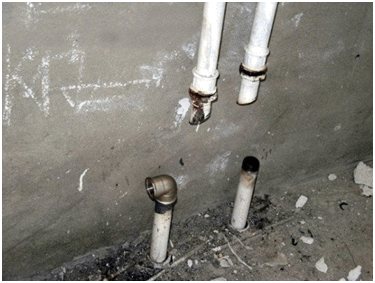

Regarding the technical side of the matter, the task of disconnecting the apartment from the centralized heating does not look difficult. To solve it, you just need to invite qualified workers. Dismantling of existing equipment and subsequent installation of an autonomous heating system is carried out in strict accordance with the project, with the participation of specialists.
Otherwise, you may face a number of problems, first of a technical plan, and then of an administrative one.
ATTENTION: IN CONNECTION WITH THE ARISING OBLIGATION TO INCLUDE THE REPAIR FUND OF TVERSKAYA REGION FROM JULY 01, 2014 PAYMENT FOR REPAIRS, PLEASE REVIEW THE SEPARATED INFORMATION
Preliminary work
Start and end of the heating season
The beginning of the period for supplying heat supply to apartments depends on the subject of the Russian Federation. It is necessary to include the resource in the houses according to the law from October 1 to 15. The completion of heating works falls on the first days of April to mid-May.
rules
According to the law, the leadership of the local municipality must agree on the start and end dates of the heat supply period with the higher authorities.At the same time, the average temperature at which the heating is turned on is + 8 ° C.
CHP plants and utilities are responsible for maintaining the required resource level in residential apartments. The table shows the standards:
Table 2.
| Heated room type | The rate below which the temperature inside the property should not fall. Condition - the room is thermally insulated. |
| Apartment in MKD, private house | 18-20 ° C. If it is below -30 ° С outside, then the indicator increases by 2 ° |
| The room where people work | 20 ° C |
| Classrooms at schools | 18 ° C |
| Playgrounds in kindergartens | 22 ° C |
| Preschool bedrooms | 19 ° C |
| Entrances, corridors, stairways in the MKD | 16 ° C |
Features of the regions
Due to the fact that Russia occupies a large territory and is located in several climatic zones, it stretches far to the north. Of course, the weather conditions are different, so the final decision on heat issues in a particular region lies with the local municipality.
For example, this year, they stopped the supply of heat:
- disconnected in Moscow on 04/26/2019;
- Tula - 04/28/2019;
- Yaroslavl - 04.24.2019;
- Tver - 04/29/2019.
When to start heating after winter
The question of turning on the batteries worries citizens as much as turning them off.
To find out the approximate time frame, you need to find out what conditions the heating companies will be guided by:
- Within 5 days, the average temperature outside the window should be no more than 8 ° C. This mark was not chosen by chance. If you move the dates, then there will be a possibility of freezing of the heating system, especially in the entrances of residential buildings. If such a situation arises, the building will be in an emergency position, and repairs will be expensive.
- The heating system is turned on from October 1 to October 15. Previously, it is impractical to start heating supply, since the process is laborious and costly.
- Experts also take into account the weather forecast for the next month. If there is a sharp warming after a few days, then there is no point in turning on the batteries in the houses. The consumer will have to pay money for the wasted heat supply.
Starting a heating system is always associated with a large number of overlays. Heating mains quickly gain the required power, but heating does not appear in radiators immediately.
Note: there is air in the system, which blocks the flow of heat. To solve the problem with the low temperature in the apartment, the owner must release it on his own. To do this, you need to open two valves located on the radiators.
